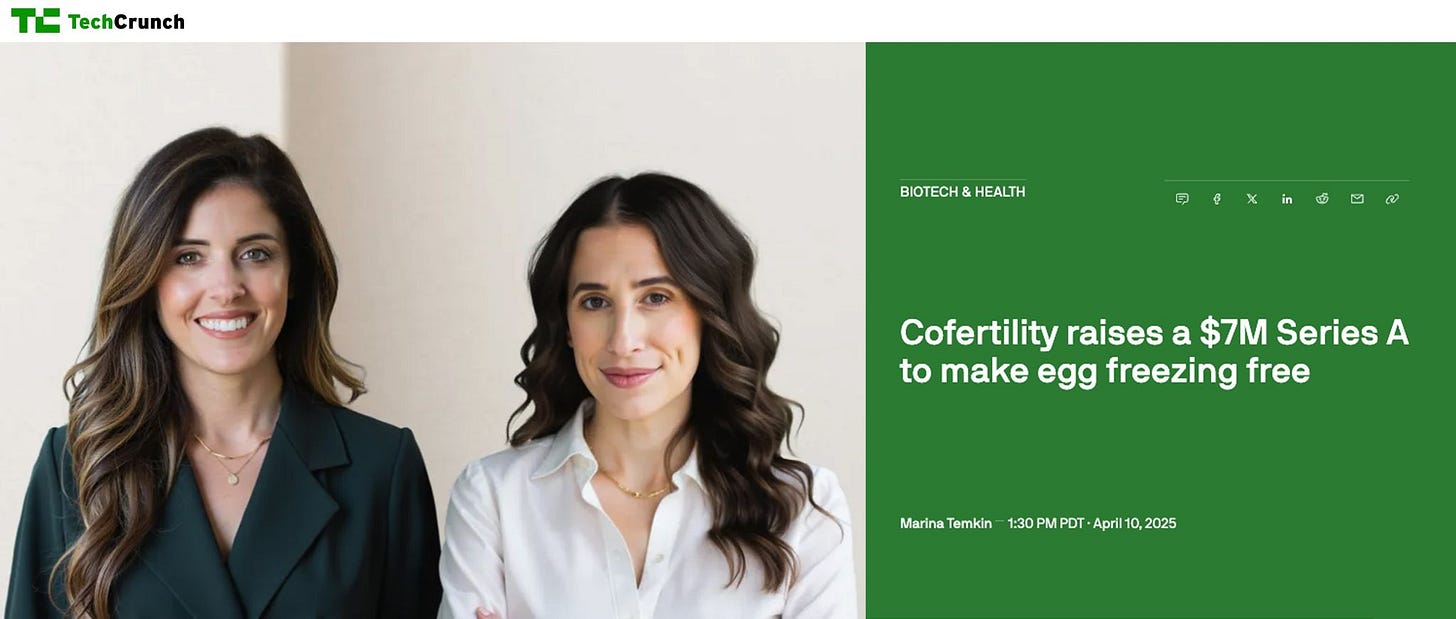🔍 Why I stopped angel investing after 15 years (and what I'm doing instead)
Plus: My interview with Oscar co-founder Mario Schlosser
I’m testing out putting the entire article in the email vs making you click through to my blog. I think it will be easier for you to read (let’s just hope I don’t have any post-send edits). Let me know what you think by forwarding to a friend to subscribe 🙏
After 15 consecutive years of angel investing, I hit pause in 2024. It's now been a full 12 months without writing a check, marking the longest hiatus in my angel "career."
There isn't enough transparency in angel investing, and my past posts on the topic have been reader favorites. So I decided to share why I stepped back from angel investing after backing 54 companies and what I'm doing instead. Next week, I'll follow up with the cold, hard data on my portfolio performance.
My original motivations for angel investing
A few years ago, people were trying to convince me to raise a fund. There was a lot of money going around for emerging fund managers, and I had enough of a track record to make a reasonable VC. I thought seriously about the opportunity and what it would mean for me personally and professionally. I talked to potential partners and colleagues. I did the math on what size fund we’d need to raise.
During this exercise, I reflected on why I began angel investing in the first place:
For fun: I really enjoyed working with founders
To learn: I wanted the unparalleled opportunity of being at the forefront of innovation and trends
For the money: I liked investing, and I wanted to put my money to work
Ultimately, I decided running a VC fund was not how I wanted to spend my time. In fact, I realized I didn’t even want to spend my time angel investing anymore. Through this exercise, it became clear to me that there were better ways to achieve those goals.
So why did I stop angel investing?
#1: I wanted deeper founder relationships
Angel investing follows basic portfolio theory principles—each individual investment carries extreme risk, so you need to build a diverse portfolio. The standard advice is that you need 20-30 investments minimum to have a statistically viable chance of finding a company that returns your entire fund.
But it’s this same diversification that spreads you too thin. My portfolio became too broad to meaningfully support. I couldn't provide the kind of value that initially drew me to angel investing: working closely with founders to help them succeed.
What started as a few hours a month quickly grew into a full-time (unpaid) job. When you back 50+ companies, even minor requests add up on a daily basis:
One company needs you to help close a key hire
Another is raising a bridge round and wants your input on the deck
A third is struggling with a co-founder conflict and needs advice
An investor calls asking you to vouch for a portfolio company they’re considering backing
All this happens while new pitches continue to flood your inbox. The result was increasingly shallow interactions with more and more companies, exactly the opposite of what drew me to angel investing in the first place.
#2: I wanted more meaningful learning experiences
When I started angel investing, one of my primary motivations was to learn. I convinced myself that being on cap tables would give me special insight and keep me current in the industry.
But when I really thought about it, I realized that angel investing provides surprisingly limited learning opportunities compared to other outlets. Following industry news, hosting a podcast, teaching, writing a book, starting companies, attending conferences, having coffee with founders (without the pressure to invest), and joining advisory boards were equally, if not more, effective ways to learn about the industry.
I still believe there’s something ✨ magical ✨ you soak in working alongside founders. I just don’t think investing is the only way to get that experience. In fact, I've found that advisory roles and board positions often provide deeper insights than passive investing because you're more actively involved. The reality is that most angel investors get sanitized quarterly updates (if that), which barely scratch the surface of what's really happening in a company. When you're more deeply engaged—even without a financial stake—you get to see the unfiltered challenges and strategic decisions that drive real learning.
#3 The math stopped mathing
The math simply stopped mathing – especially when weighed against my other priorities.
Unlike VCs, who are compensated for their work through management fees, angels do it for free while also taking 100% of the financial risk.
Angel investors also face the longest time horizon for liquidity of any investor. Private equity aims for 3-5 year returns, and VCs typically run 7-10 year fund cycles, but angels usually wait 10+ years for exits. This means angels aren’t just taking company-specific risk, but also the risk of facing more macroeconomic cycles.
Think about all that's happened since 2009 when I started: multiple presidential administrations, a global pandemic, zero interest rates, and now high inflation and higher interest rates. My investments have had to withstand all of these shifts, and many didn't make it through.
The post-ZIRP era (2023-2024) created headwinds that even well-positioned startups struggled to navigate. Just since 2023, I have had:
One company that raised over $100M, with my shares at one point valued at over $1M on paper, acquired in a fire sale that returned zero to early investors
Two others that were also “acquired” with some fanfare in the media, but returned nothing to early investors
Four companies shut down after being unable to get to profitability or fundraise
Four others that raised money but with painful recapitalizations that effectively wiped out early shareholders
That last bullet was the nail in the coffin for me. For new investors to come in and wipe out early investors just because the market was in their favor was painful. It felt like opportunistic resets that enriched later investors at the expense of early supporters (not to mention early employees).
It’s also worth noting I've made more money building companies than I have investing in them. Some of that is luck, but founding a company provides something angel investing doesn't: the ability to directly influence outcomes.
When you account for the opportunity cost of capital, the extreme time horizon, the macro risks, and the possibility of having your ownership severely diluted, the potential returns need to be astronomical to justify the investment. And as my portfolio data shows (which I'll share next week), those returns simply aren’t materializing at the rate needed to offset these risks.
What I'm doing instead
So what's filling the startup-shaped hole in my life now that I've stopped writing angel checks? I've pivoted to approaches that better align with my original goals:
Depth over breadth
For deeper founder relationships, I joined the board of growth-stage company Collective Health, a startup we invested in over a decade ago at Rock Health. I also helped start Cofertility, where I serve as Board Chair.
Learning out loud
For continued learning, I'm doing all the fun things like hosting a podcast and writing this newsletter/blog. I also teach two courses a year, one at Columbia Business School and one virtually at Harvard Medical School. As Phil Collins said, “In learning, you will teach, and in teaching, you will learn.”
Professional capital deployment
Lastly, I became a Limited Partner (LP) in a handful of VC funds, basically paying professionals to do the investing on our behalf. It's been three years, so it's still early, but it will be interesting to see if the VC returns are better than direct investing.
Will I return to angel investing?
I haven't closed the door permanently on angel investing, but any return would look different from my previous approach. For now, I'm enjoying the clarity that comes from a more concentrated focus. Sometimes the best investment decision is deciding not to invest at all.
Next week, I'll share the complete data on my 54 startup investments over 15 years—including returns, losses, and current portfolio status.
🎧 New podcast episode
Health insurance has a Net Promoter Score (NPS) of around 0-10 industry-wide, one of the lowest ratings of any industry. This is exactly why the founders of Oscar Health, with no background in healthcare and a distaste for the industry, started the company in 2012. Since then, Oscar has grown to 1.7 million members, gone public, and achieved profitability—all while receiving an NPS significantly higher than the industry average.
In this episode, I interviewed Mario Schlosser, co-founder and CTO of Oscar Health, about building a tech-first health insurance company in an industry notorious for poor customer experiences.
We cover:
🏥 Why outsiders without healthcare backgrounds decided to tackle the insurance industry
💰 How Oscar grew to 1.7 million members while maintaining a 60+ NPS score in a hard-to-please industry
📊 The balance between denying unnecessary care and empathetically supporting members
⚙️ How ICHRAs (Individual Coverage Health Reimbursement Arrangements) are disrupting traditional employer-sponsored healthcare
🧶 The beginning of the unraveling of the employer markets
💼 The changing employer healthcare market and why small businesses are seeking alternatives
Tune in wherever you listen to podcasts! Apple | Spotify
💸 Cofertility raises a Series A
They say you’re not supposed to celebrate a fundraise. Just get back to work. But…
➡️ Women’s health companies get less than 5% of digital health funding.
➡️ Women-led companies get under 2% of venture funding.
So when a woman-led women’s health company breaks through these odds—let us do a little dance to celebrate before getting back to work.
Congratulations to the Cofertility team on this next milestone. PS: We’re hiring!
Want to support my work?
⭐️ Leave a review for the Heart of Healthcare podcast. It takes just five seconds!
💻 Download a copy of my digital health startup database.
🫶 Share this email with a digital health friend.
💸 Reach out to collaborate.






This is one of the best blog posts. I’ve read in a while. Thank you for writing it.
Halle, this hit hard. I’ve been building a small ecosystem around angel investing in women’s health, and your post made me pause. Not because I disagree, but because I see exactly what you’re naming. The dilution. The emotional toll. The misalignment between who takes the risk and who reaps the return.
I’m sitting with all of it. Thank you for writing this with honesty and clarity. it’s shaping how I move forward. There are reflections in this piece I’ll be thinking about for a long time.